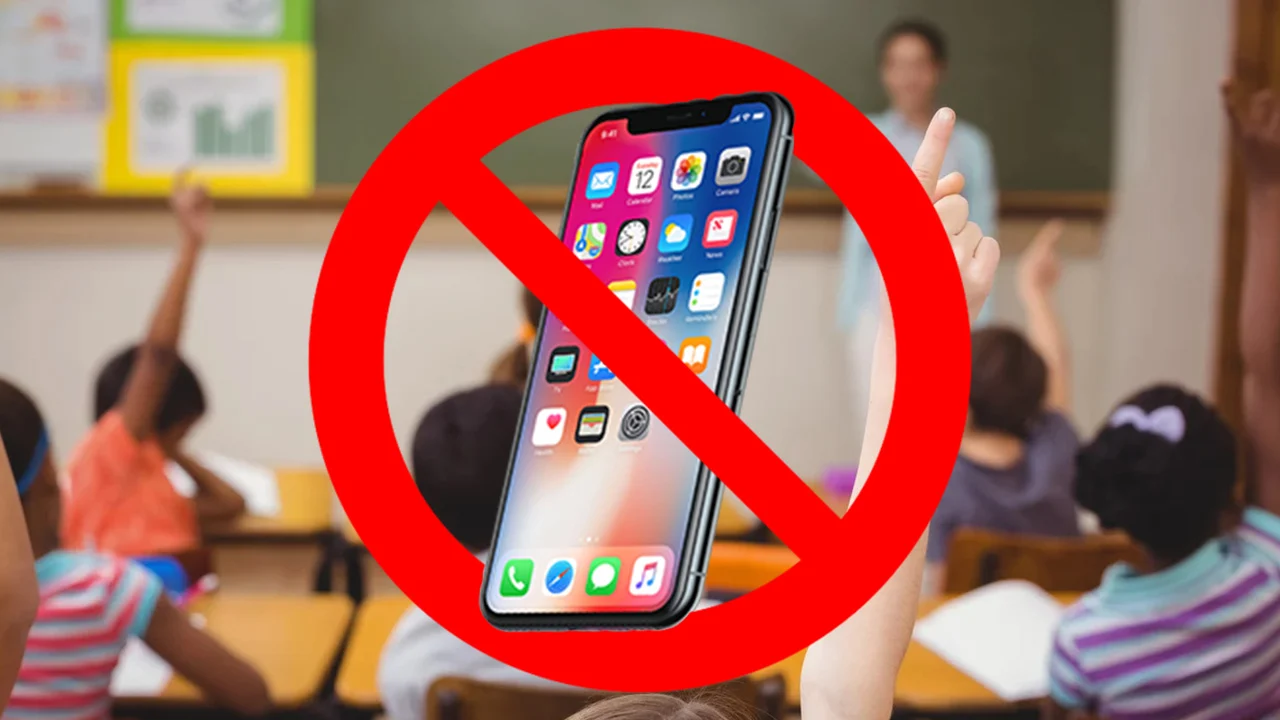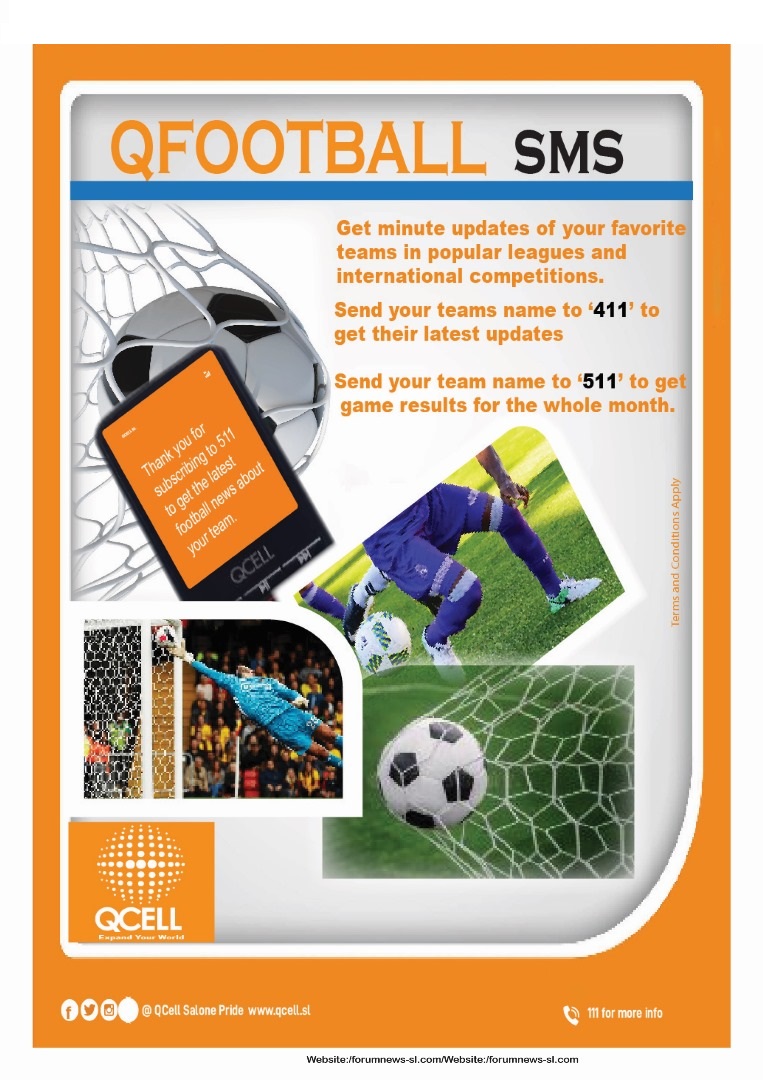By Alusine Fullah
As a senior teacher, I have to be honest and authoritatively state here that cell phones are a distraction in the class room. I use the word distraction in the context that pupils/ students using their phones with something that is completely not pertained to teacher/ lecturer’s lesson. When I started teaching I was one of those opponents of the argument: “phones in the classroom are not a distraction to learning” Back then, I was just new in the field, I never knew the huge distraction they have in the learning session. Indeed, I was very curious and determined to have a proof on this argument. The other day I got out of class early in the business building, as I usually do. I was walking down the hallway, back to my dorm, as I walked across a classroom that I happened to look inside. As the senior teacher was in the front of the classroom giving his lesson for that day, I noticed that about fifteen of twenty students had their phones out not paying one little ounce of attention to my colleague teacher. I went to those pupils who were using their phones while the teaching and I asked them to explain what the teacher was saying. The teacher was teaching government and the topic then was ‘state.’ Even though I was standing outside, I vividly understood the teacher’s lesson. But for the students/ pupils who were using their phones to text/ message their friends/ parents was quiet contrary to my scenario. So I went to the class and asked Mariam Binta Kamara to briefly explain what the teacher was teaching. She said: “Mr. Fullah I heard the teacher say state, but I don’t understand…” Since I knew those who were paying attention, I slowly move to Aminata Musa Sesay and asked her to briefly tell me what she had learnt from the lesson. She said; ‘Mr. Fullah, I have learnt a lot from this lesson. In the first place the teaching state as a topic under government. The teacher defined state as a centralized political organization that imposes and enforces rules over a population within a territory….” Wow! Really, I was moved by the response of Aminata Musa Sesay.
The other day I got out of class early in the business building, as I usually do. I was walking down the hallway, back to my dorm, as I walked across a classroom that I happened to look inside. As the senior teacher was in the front of the classroom giving his lesson for that day, I noticed that about fifteen of twenty students had their phones out not paying one little ounce of attention to my colleague teacher. I went to those pupils who were using their phones while the teaching and I asked them to explain what the teacher was saying. The teacher was teaching government and the topic then was ‘state.’ Even though I was standing outside, I vividly understood the teacher’s lesson. But for the students/ pupils who were using their phones to text/ message their friends/ parents was quiet contrary to my scenario. So I went to the class and asked Mariam Binta Kamara to briefly explain what the teacher was teaching. She said: “Mr. Fullah I heard the teacher say state, but I don’t understand…” Since I knew those who were paying attention, I slowly move to Aminata Musa Sesay and asked her to briefly tell me what she had learnt from the lesson. She said; ‘Mr. Fullah, I have learnt a lot from this lesson. In the first place the teaching state as a topic under government. The teacher defined state as a centralized political organization that imposes and enforces rules over a population within a territory….” Wow! Really, I was moved by the response of Aminata Musa Sesay.
Yes I have seen and felt it. When the principal made me as a form master, the first thing that came to my mind was how to curb phones in my class? Guess what, I implemented a phone storage system in my classroom. Pupils were required to place their devices in a pocket with their name on it when they entered the classroom. I made this procedure an official classroom policy, and I explained my rationale to my pupils in a frank discussion.
The parents and my pupils both had to sign off on the policy. Storing phones was a game-changer in my classroom. Students didn’t balk at it, and they actually seemed to appreciate the time away from their phones. They realized that they could be without their phones for a whole class period without the world ending. Based on this policy, in 2017, the principal of the school made me senior teacher. This strategy made me famous and worthy among my colleague teachers and the parents. In 2020 I grabbed the “Best teacher award in my school.”
Based on my findings, when students/ pupils are allowed to use phones, tablets or other devices for non-academic purposes during classroom lectures, they perform worse in the end-of-term exams, according to a new Rutgers University–New Brunswick study. When millions of pupils/ students adore their cell phones so much that they spend more time texting, calling, playing games, listening to music, and going on social media than they do sleeping. Before the late 19th century, no one had even heard of what a telephone was. Now, over 90% of Americans own a digital cell phone and use it daily. All over the world, cell phones are growing rapidly in popularity due to the vast improvements but concerns such as deadly distractions also increase.
However, despites the foregoing narrations, in my few years of experience in the field of teaching, I have also learnt that phones especially smart phones have massive positive contributions. To be candid, technology is rapidly in all aspects of modern societies and education is no exception. In line with this trend, information and communication technology is increasingly utilized as a teaching and learning tool in education activities. Academic institutions, like a learning organization, also pay considerable attention to the use of advanced technologies to facilitate their progress especially in the areas of teaching and learning.
Cell phones allow students to find out what is happening outside their classroom. They also provide a way to stay updated with current events and topics that may arise in class. This knowledge, in addition to books, also helps with homework. Meanwhile, because cell phones are so ubiquitous these days, many people use them as a teaching tool by studying something online during discussions (e.g. math problems). For instance, there was a time when I was teaching and had mistakenly spelt the word privilege as ‘privilege’, but while explaining the lesson note to my pupils I easily noticed that. So I had to take my smart phone and look up the correct version of it in the dictionary.
Cell phones are the main requirement of students at the present time. Using phones during school hours in today’s world is one way for teenagers to feel more secure going to school for the day. However, in most schools, cell phones are banned and prohibited. Students who bring cell phones to these schools are also subject to heavy fines and corporal punishment. School authorities believe that cell phones can cause disciplinary problems in the institution. On the other hand, some school administrators only allow cell phone use after class.
Should Sierra Leone education system follow the dictate of UNESCO?
It argues that education systems should always ensure that learners’ interests are placed at the centre and that digital technologies are used to support an education based on human interaction rather than aiming at substituting it. The report looks at ways in which technology can help reach disadvantaged learners but also ensure more knowledge reaches more learners in more engaging and cheaper formats. It focuses on how quality can be improved, both in teaching and learning basic skills, and in developing the digital skills needed in daily life. It recognizes the role of technology in system management with special reference to assessment data and other education management information.
UNESCO Issues Urgent Call for Appropriate Use of Technology in Education
Paris, 27 July 2023 – A new global UNESCO report on technology in education highlights the lack of appropriate governance and regulation. Countries are urged to set their own terms for the way technology is designed and used in education so that it never replaces in-person, teacher-led instruction, and supports the shared objective of quality education for all.
“The digital revolution holds immeasurable potential but, just as warnings has been voiced for how it should be regulated in society; similar attention must be paid to the way it is used in education. Its use must be for enhanced learning experiences and for the well-being of students and teachers, not to their detriment. Keep the needs of the learner first and support teachers. Online connections are no substitute for human interaction.”
-Audrey Azoulay, UNESCO Director-General
Entitled “Technology in education: A tool on whose terms?” , the 2023 Global Education Monitoring Report is being launched today at an event in Montevideo, Uruguay, hosted by UNESCO, the Ministry of Education and Culture of Uruguay and Ceibal Foundation with 15 ministers of education from around the world. It proposes four questions that policy makers and educational stakeholders should reflect upon as technology is being deployed in education:
- Is it appropriate?
Using technology can improve some types of learning in some contexts. The report cites evidence showing that learning benefits disappear if technology is used in excess or in the absence of a qualified teacher. For example, distributing computers to students does not improve learning if teachers are not involved in the pedagogical experience. Smart phones in schools have also proven to be a distraction to learning, yet less than a quarter of countries ban their use in schools.
“We need to learn about our past mistakes when using technology in education so that we do not repeat them in the future. We need to teach children to live both with and without technology; to take what they need from the abundance of information, but to ignore what is not necessary; to let technology support, but never supplant human interactions in teaching and learning.”
-Manos Antoninis, Director
Learning inequities between students widen when instruction is exclusively remote and online content is not always context appropriate. A study of open educational resource collections found that nearly 90% of higher education online repositories were created either in Europe or in North America; 92% of the material in the Open Educational Resources Commons global library is in English.
- Is it equitable?
During the COVID-19 pandemic, the rapid shift to online learning left out at least half a billion students worldwide, mostly affecting the poorest and those in rural areas. The report underlines that the right to education is increasingly synonymous with the right to meaningful connectivity, yet one in four primary schools do not have electricity. It calls for all countries to set benchmarks for connecting schools to the internet between now and 2030 and for the focus to remain on the most marginalized.
- Is it scalable?
Sound, rigorous and impartial evidence of technology’s added value in learning is needed more than ever, but is lacking. Most evidence comes from the United States, where the What Works Clearinghouse pointed out that less than 2% of education interventions assessed had ‘strong or moderate evidence of effectiveness’. When the evidence only comes from the technology companies themselves, there is a risk it may be biased.
Many countries ignore the long-term costs of technology purchases and the EdTech market is expanding while basic education needs remain unmet. The cost of moving to basic digital learning in low-income countries and connecting all schools to the internet in lower-middle-income countries would add 50% to their current financing gap for achieving national SDG 4 targets. A full digital transformation of education with internet connectivity in schools and homes would cost over a billion per day just to operate.
- Is it sustainable?
The fast pace of change in technology is putting strain on education systems to adapt. Digital literacy and critical thinking are increasingly important, particularly with the growth of generative AI. Additional data attached to the report show that this adaptation movement has begun: 54% of surveyed countries have defined the skills they want to develop for the future. But only 11 out of 51 governments surveyed have curricula for AI.
In addition to these skills, basic literacy should not be overlooked, as it is critical for digital application too: students with better reading skills are far less likely to be duped by phishing emails.
Moreover, teachers also need appropriate training yet only half of countries currently have standards for developing their ICT skills. Few teacher training programs cover cyber security even though 5% of ransom ware attacks target education.
Sustainability also requires better guaranteeing the rights of technology users. Today, only 16% of countries guarantee data privacy in education by law. One analysis found that 89% of 163 education technology products could survey children. Further, 39 of 42 governments providing online education during the pandemic fostered uses that ‘risked or infringed’ on children’s rights
Yes, the ability to write clearly has great tendency to strengthen the person’s ability to think clearly and to communicate effective. It should not be surprising that many pupils/ students these days seem more at school in the world of gadgets and electronic appliances. Phones in the classroom are vastly influencing English language and the standard of education too. As a nation what should we do? Today, if students/ pupils cannot perform in their exams (WASSCE/ BECE) I can confidently say it is as a result of the unnecessary use of phones in school/ classroom. Many of them cannot spell well, also many of them cannot pronounce well. Why? The unnecessary uses of phones in the classroom (which have the tendency for distraction) are contributing immensely to it. So in all, I wish the Ministry of Education heeds to the call of UNESCO!!













